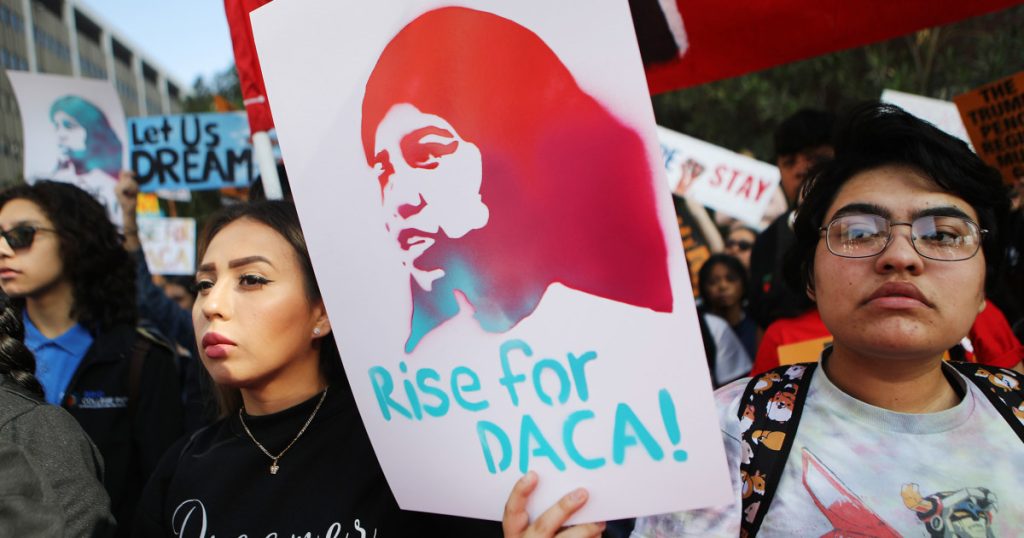More than 100,000 young immigrants protected by the Deferred Action for Childhood Arrivals (DACA) program will soon be eligible to receive federal health care coverage for the first time since DACA was implemented over a decade ago. This change is a result of a new federal rule announced by the Biden administration allowing DACA recipients to enroll in a qualified health plan through the Affordable Care Act insurance marketplace or become eligible for coverage through a basic health program. DACA has allowed an estimated 580,000 young adults who lack legal immigration status to work or study in the U.S. without fear of deportation, with a majority being born in Mexico and other Latin American countries.
Despite the benefits of DACA, recipients have been barred from accessing federally funded health insurance despite contributing billions in federal taxes over the years. Many DACA recipients obtain health insurance through their jobs, but over a quarter remain uninsured. By expanding the definition of “lawful presence” to include DACA recipients, the new federal rule will allow them to receive coverage from a quality health plan and financial assistance. This change will improve the health and well-being of DACA recipients, who are currently three times more likely to be uninsured than the general U.S. population.
The U.S. Department of Health and Human Services estimates that over 100,000 young immigrants who lack health insurance will now have access to affordable health care through the new federal rule. While DACA recipients will not be eligible for the Medicaid program, they can receive coverage through the Affordable Care Act and its marketplaces and financial assistance programs. The rule is set to go into effect on November 1, coinciding with the open enrollment period for 2025 health insurance plans, allowing newly eligible DACA recipients to access federal health care as early as December.
President Joe Biden first announced the administration’s plan to expand health care coverage to DACA recipients about a year ago. The original plan aimed to implement the federal rule by November 2023, but the implementation has been delayed. However, White House domestic policy adviser Neera Tanden emphasized the president’s commitment to fighting for DACA recipients, highlighting that only Congress can provide them with permanent status and a pathway to citizenship. Despite the challenges faced by the program during the Trump administration and legal battles from Republican-led states, DACA continues to provide relief to eligible young immigrants.
DACA recipients have been able to access better-paying jobs and educational opportunities since the program’s implementation in 2012, but the lack of health insurance has been a significant barrier to their overall well-being. By allowing DACA recipients to enroll in federal health care coverage, the new rule will address the issue of uninsured individuals within this population. This change will not only benefit DACA recipients but also strengthen the health and well-being of the nation as a whole. The announcement of the new rule marks a significant step in expanding health care access to vulnerable populations and promoting equity in the health care system.


